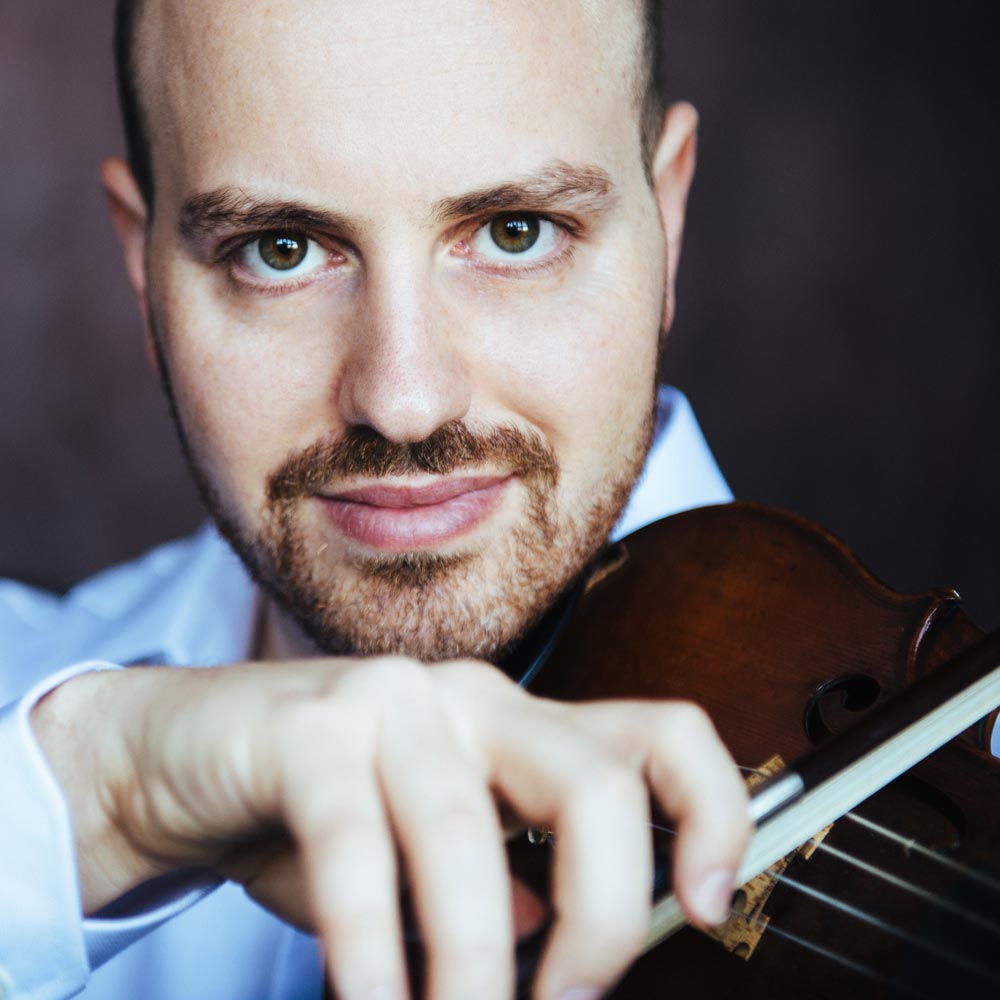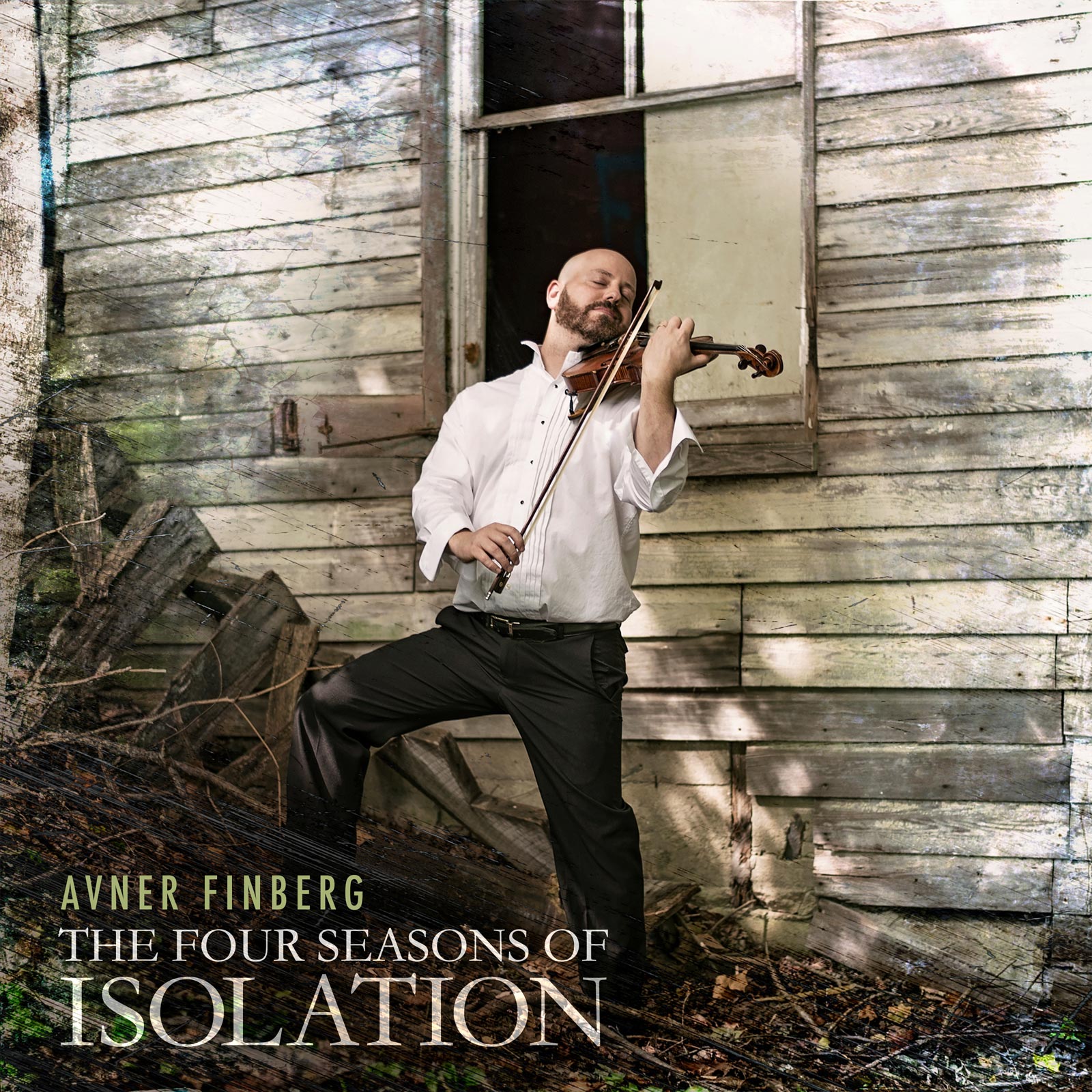
Avner Finberg’s album THE FOUR SEASONS OF ISOLATION is a moving meditation on the COVID-19 pandemic and resulting lockdowns. Finding himself separated from his fellow musicians and beloved concert audiences, Finberg took the opportunity to focus on composition and began writing this large-scale work for solo violin and electronics. Freed from the need for an accompanist, he worked in solitude to develop this musical essay reflecting on his year in isolation.
Today, Avner is our featured artist in “The Inside Story,” a blog series exploring the inner workings and personalities of our composers and performers. Read on to learn about his love for science fiction novels, and the ways in which the COVID-19 pandemic changed him…
Who was your first favorite artist growing up?
I had a record at home of Stravinsky’s Firebird and Mussorgsky’s Night on a Bare Mountain performed by Stokowski and The London Symphony. I listened to it when I was about five years old. It was an incredible album, with rich beautiful sound. Still is!
When did you realize you wanted to be an artist?
It is hard to pinpoint a specific moment, but it must have been while I was enrolled at the Wizo highschool for the Arts in Haifa. We had two full days of music each week, and we learned harmony, counterpoint, improvisation and composition. It was the first time I had an artist community, and many of the graduates of that school went on to become professional musicians.
What is your guilty pleasure?
I have to confess; I am addicted to science fiction novels. I spent most of my winter break reading The Three-Body Problem and The Dark Forest by Xicin Liu. One of my favorite sci-fi novels growing up was Asimov’s The Foundation. In fact, The Visi-Sonor, a hallucination-inducing instrument played by The Mule in Foundation and Empire inspired me to start using electronics as a way of expanding the abilities of the violin.
If you instantly had expertise performing one instrument what instrument would that be?
I always loved the pipe organ, since it can make so many different types of sounds. It’s also one of the least accessible instruments and one of the most difficult to master.
What was your favorite musical moment on the album?
The double fugue at the end of “In Perpetuum,” the last movement of The Four Seasons of Isolation. It is both a departure from everything that happened earlier in the movement, but also a fitting ending to this monumental composition.
What does this album mean to you personally?
Written in real time, this album is a look at and a commentary on how the pandemic changed both myself and the world. Writing The Four Seasons Of Isolation was a way for me to cope and work through a difficult time in my life during the pandemic when I was starting over in a new city with everything shut down and with an infant child. Undergoing this project was a leap of faith, since it was such a complex undertaking, and I was not even sure that I would be able to finish it on time. I think it turned out better than expected, and I hope you will enjoy listening to the finished album.

Avner Finberg is an Israeli-American composer and violinist. He studied composition with Ari Ben-Shabtai at The Jerusalem Academy of Music, with Robert Cuckson at The Mannes College, and with Susan Botti at Manhattan School of Music, where he earned a doctorate dfasin composition in 2015.
Finberg’s music has been described by Steven Stucky as “reined, mature work of impeccable technique, original voice, and considerable ambition.” His musical inspirations stem from his Israeli roots and his current life in the United States, combining without discrimination multiple world music traditions with contemporary and classical music techniques and modern technology.

